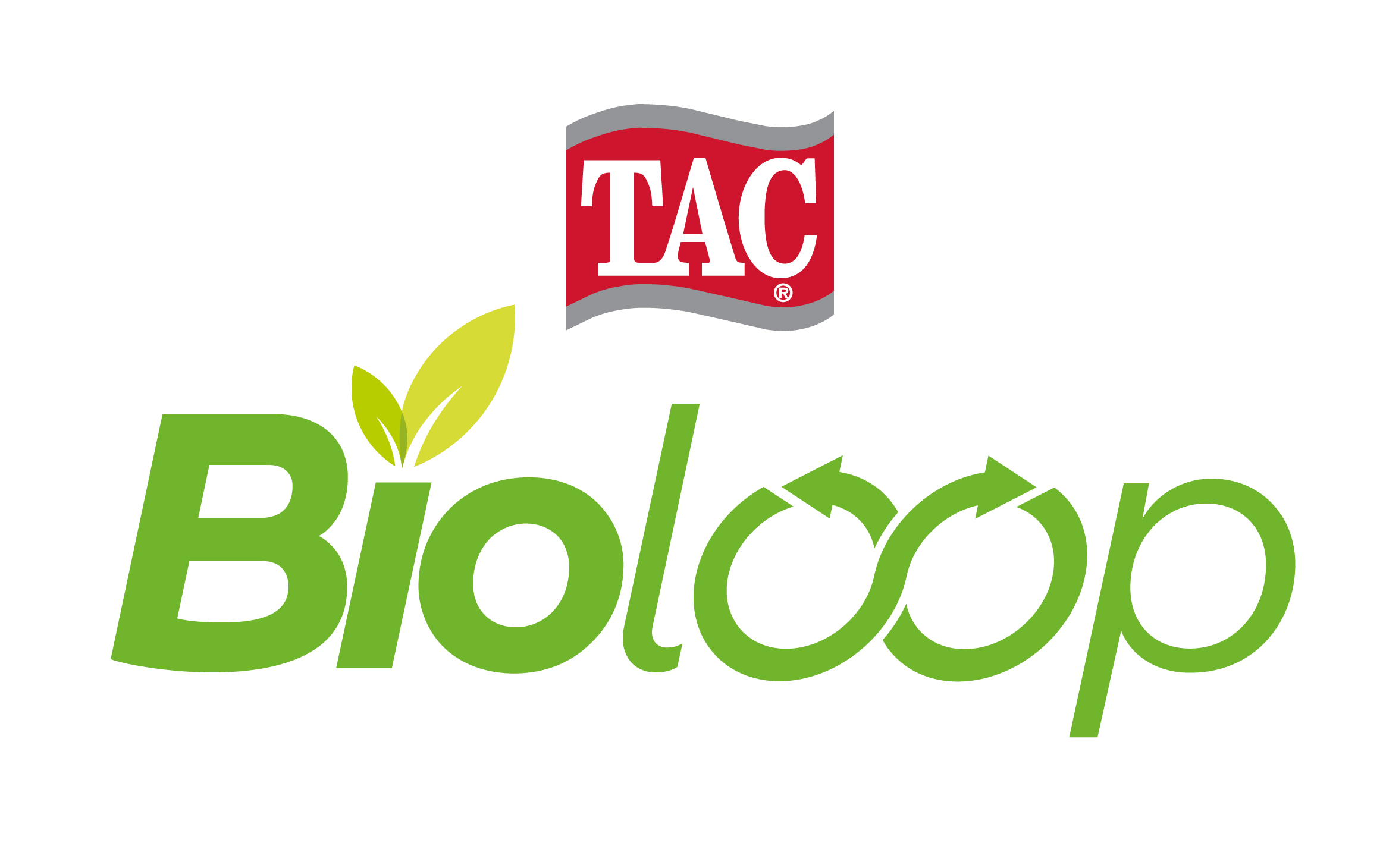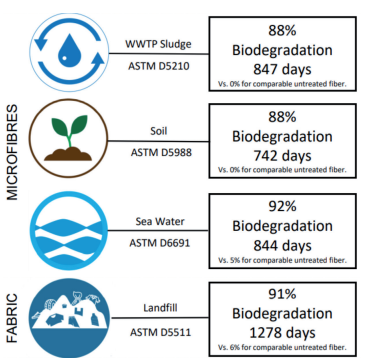TAÇ BIOLOOP
Biodegradable Solution To Complement Circularity
TAÇ BIOLOOP® was developed to reduce the persistence of fugitive synthetic microfibers, which is caused by textiles. Thanks to its special formulation, it creates countless biodegradable spots where microbes can form functional entities that biodegrade the material throughout the matrix of the PET yarn. The microorganisms degrade and digest the PET yarn with the help of these spots.
The yarn is produced by adding a sustainable additive to the PET chips during the melt spinning process that imparts biodegradable properties. This sustainable additive can be blended with recycled or virgin PET and can be dope dyed. Since the additive does not affect the mechanical properties of the yarn, the biodegradable PET yarns can be used in all applications where virgin and recycled PET yarns are used.
Applications

• Apparel •Automotive •Upholstery •Home textiles •Denim •Uniforms •Sewing threads •Zippers
Advantages
- Built-in sustainability assurance to minimize fugitive synthetic textile pollution.
- Proven efficacy through reliable scientific data from third-party laboratory studies using internationally recognized ASTM test methods to measure the rate and extent of biodegradation in simulated environments.
- Recyclable
- Can be produced with REBORN® version.
- Non-toxic to marine life.
- Traceable with certificate and hangtag programs.
- REACH Compliant.
- Suitable for existing dyeing and finishing processes.
- Responsible marketing approach arising from strong supplier & manufacturer cooperation.
- ECO PASSPORT Certified by OEKO-TEX®.
The additive used to produce the yarn has been confirmed as safe for use in sustainable textiles with a certificate called OEKO-TEX ECO PASSPORT.

TAÇ BIOLOOP® technology is activated only under conditions where natural biodegradation can occur. Fabrics do not disintegrate on a storage shelf, during wear, washing or hanging in the closet - just like fabrics made from natural fibers.

Test Methods for Biodegradation of TAÇ BIOLOOP®
Fiber fragments from synthetic fabrics made with TAÇ BIOLOOP® technology do not remain in the environment forever, as is the case with other synthetic fabrics. While 100% plastic pollution prevention and fully closed loops are ideal goals, the TAÇ BIOLOOP® solution is based on current reality. Almost all textiles inevitably fail. The options for recovering the fragmented fibers are extremely limited. Once these tiny plastic microfibers end up as pollutants in the environment, they simply cannot be collected. They are prolific and are literally found everywhere: in the air, in sewage treatment plants, in the soil, in aquatic environments, in landfills and even in the guts of humans and wild animals.
- The data show the rate and extent of biodegradation of TAÇ BIOLOOP® compared to non-TAÇ BIOLOOP® polyester microfibers or fabrics in four environments where textiles are prolific pollutants.
- The remaining few percent is attributed to carbon converted to biomass.
- Negative control samples and samples of non-TAÇ BIOLOOP® polyester show no significant biodegradation in the long-term tests.
- Third-party Microtox tests confirm that the biodegradation process is non-toxic to marine life.
For product details and requests, please contact our sales representatives.
